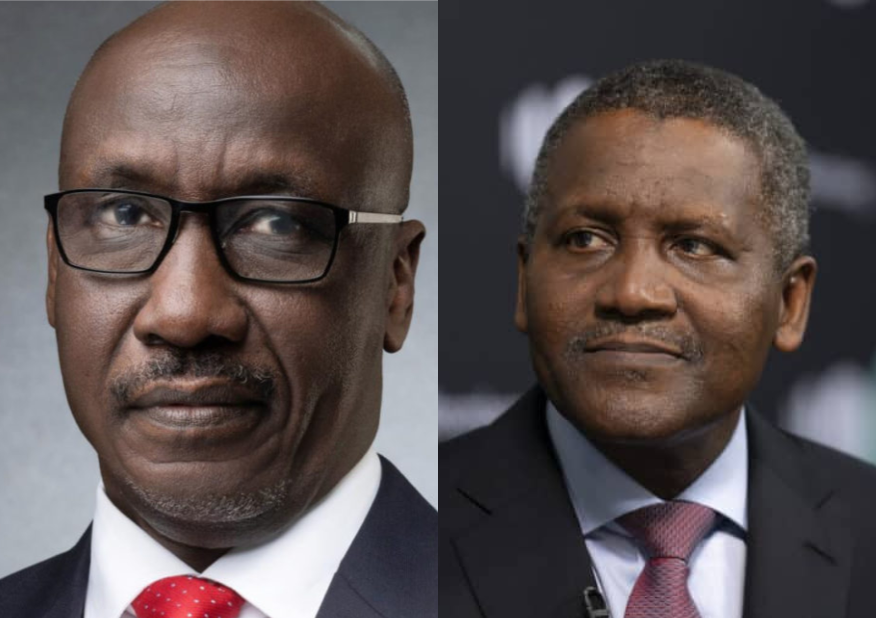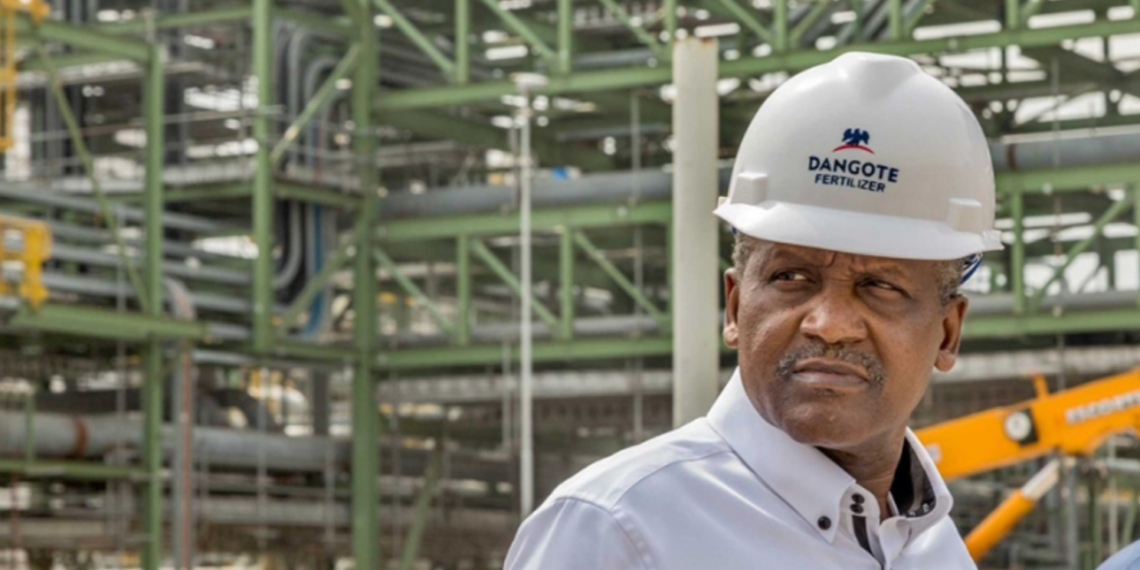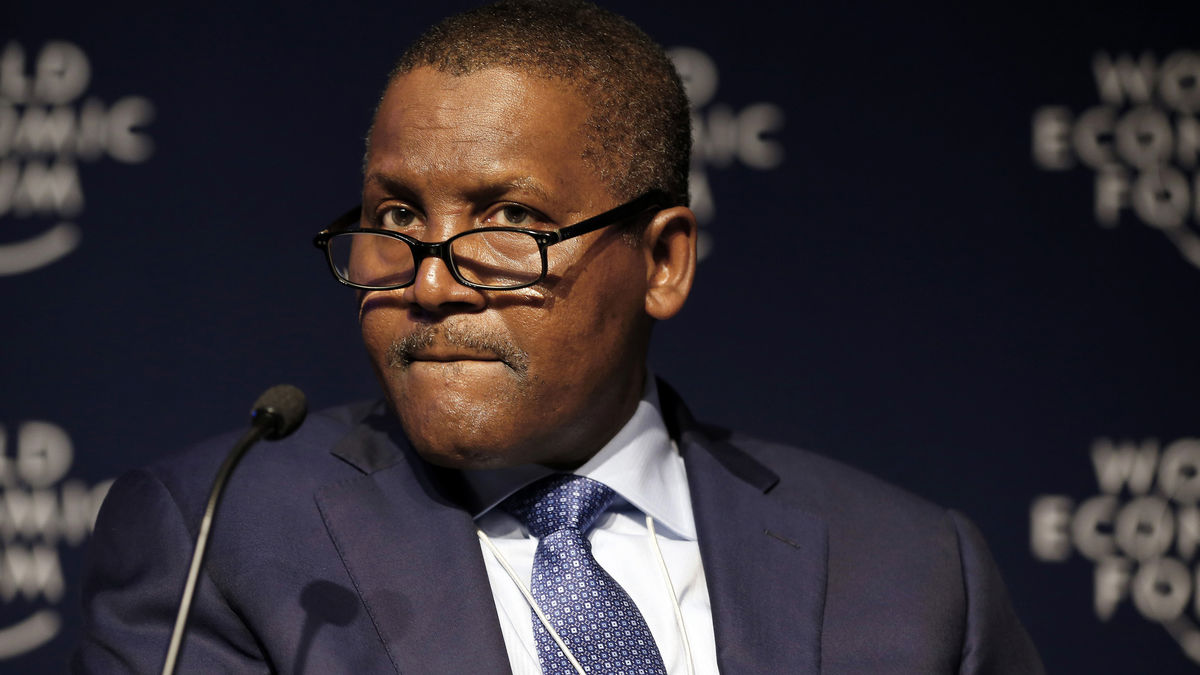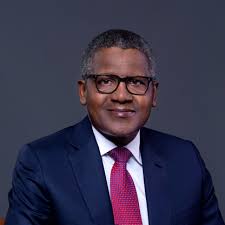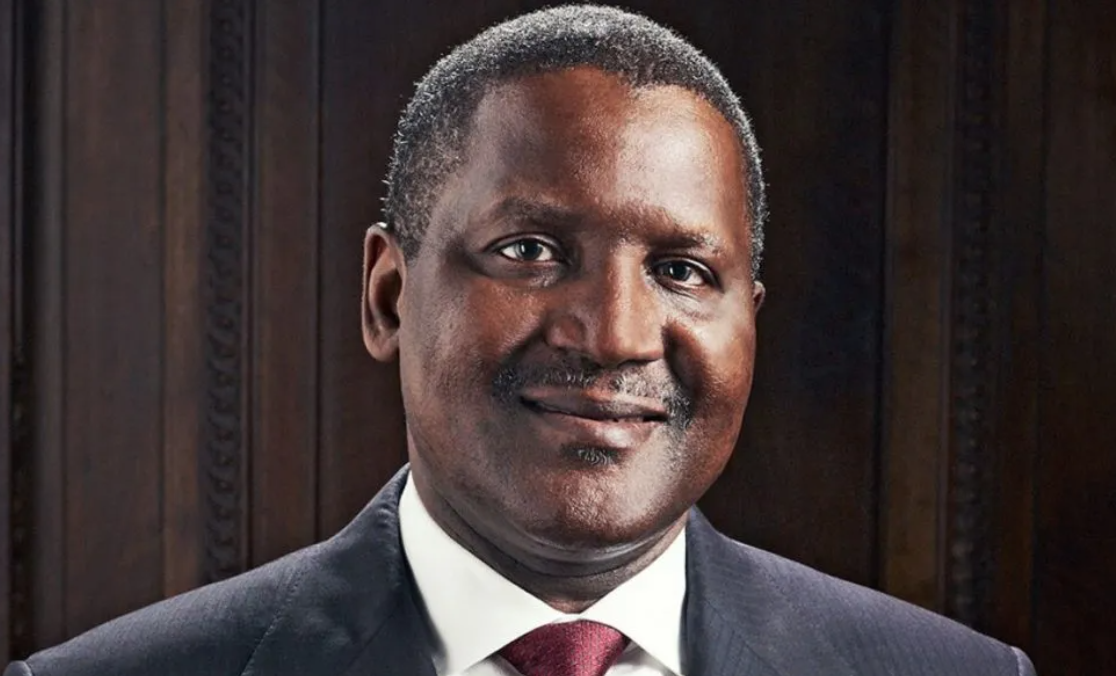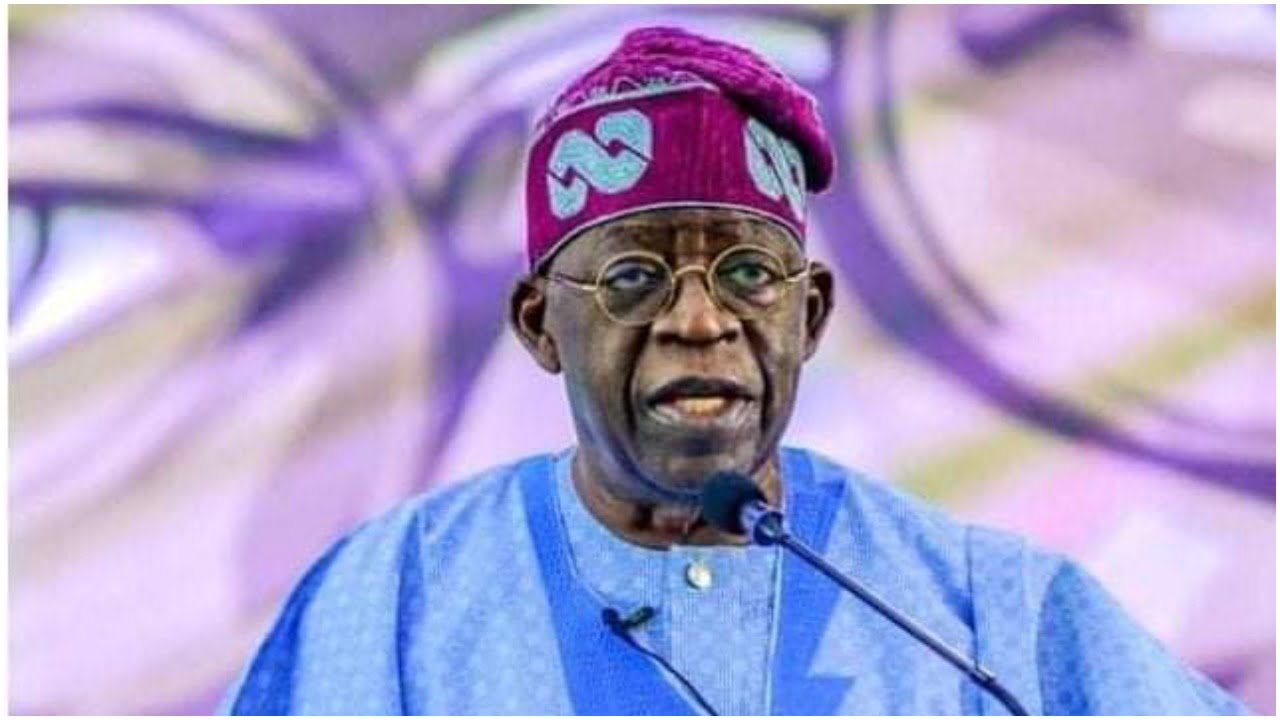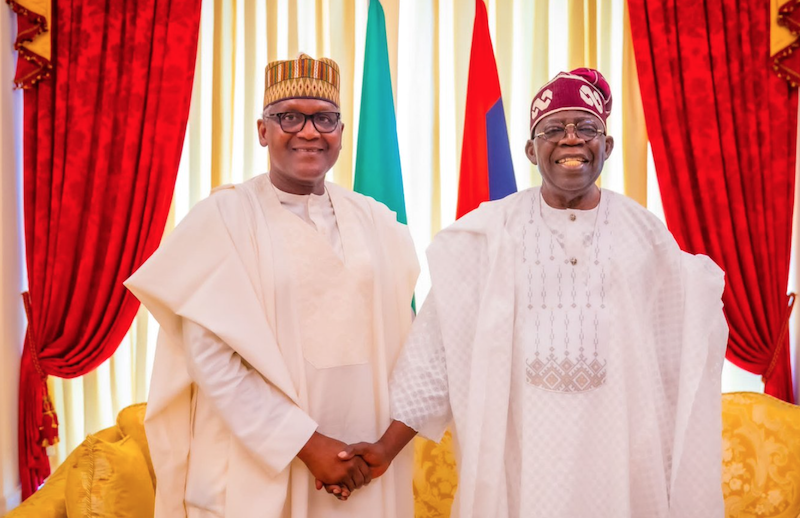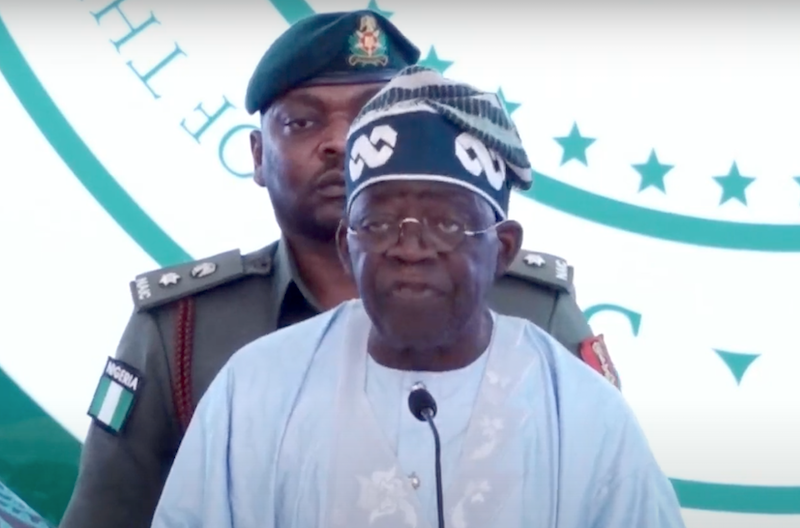Africa’s prime money man, Mr. Aliko Dangote of Nigeria, has recently changed from business suit and kaftan to battle fatigue. For a man whose visibility is defined by money and huge investments, this sudden change of costume is important. Ordinarily, Dangote as a person and a brand has become synonymous with huge factories and countless trucks traversing different African countries bearing the products of his factories. A big business man can make make rowdy media appearances to project his presence and market his enterprises in urbane gatherings of politicians and business elite.
As a rule, Mr. Dangote steers clear of contentious utterances and controversial gatherings. But he gets occasionally dragged into dog fights over turfs and market shares for his products. His instincts may not be overtly political nor is he the controversial type. Of course he cannot but contend with the toxic terrain of Nigerian politics especially the seasonal uproar of partisan fray and name calling. There is always the silent question: “who does Dangote support”, a question that no one can answer esily.
The man sees his main business as minding his business. His political footprints remain hazy just as his political footsteps are often muted. A few years back when the Obasanjo presidency were scouting for a successor to the bullish general, some PDP political big wigs sent emissaries to Dangote to see if he would want to play Berlusconi. The man turned them down.
In recent days however, the troubling Nigerian situation is revealing a different Dangote. As it turns out, the man can fight to defend his space and interests: “I have been a fighter all my life. So, I am not afraid of fights nor am I afraid of anyone…” On the matters thrown up by Nigeria’s recent economic trends and travails, Dangote is beginning to make his views known and his interests clearly defined. This is not his first turf fight. He dueled with his fellow Kano man, Abdul Samad Rabiu of BUA cement over cement market share and retail prices. Similarly, he fought the Kogi state government on taxation and land rights issues over his massive Obajana cement factory.
In the last few days, Mr. Dangote could be seen as having jettisoned a business suit and kaftan to literally don a battle fatigue. He is in a fighting mood. Not only that, he has jumped into the murky trench of Nigeria’s public discourse. He now wants to be heard on the happenings in his country. And why not? Dangote is first and foremost a citizen of the federal republic of Nigeria. He is entitled to his views and to a perspective on the state of the nation especially the economy in which he, more than anyone else, is deeply invested. As a major investor and strategic economic driver, Mr. Dangote should know where the Nigerian economic shoe is pinching most painfully. If the Nigerian economic cookie crumbles, Dangote and his bankers are more likely to be burnt beyond recognition. The rest of us are not likely to go walk off with slight bruises because of our dependency on one Dangote product or the other. If an economic tsunami hits the Dangote brand and its expansive network of enterprises, the Nigerian economy is likely to take a major hit. Such a consequential citizen cannot remain silent if he sees his interests threatened by government’s rough manners.
So, it is understandable that Dangote is presently in the trench of public discourse. He is firing in feverish defense of not only his business interests but also the fate, fortunes and future of his fellow oligarchs who are all embroiled in the mess in the Nigerian economy. When politicians roughen the economic landscape, it is often the oligarchs with huge stakes in the economy who bear the brunt.
Initially, Dangote chose to take on the Central Bank of Nigeria’s policy somersaults and endless tinkering with major indices in the troubled economy. In particular, the astronomical interest rates that keep going higher every week has troubled major players in the economy. Dangote had cause to openly criticize the rising interest rates. He was unequivocal, insisting that the high rate is antithetical to economic recovery and growth: “ Nobody can create jobs with an interest rate of 30 percent.” He went further to argue that the national economy cannot recover let alone grow in such a high interest rate environment. Criticisms of the incumbent government’s economic policies can be expected to come from regular boardroom spokespersons and textbook professional economists. But coming from a pivotal oligarch and consequential economic factor like Dangote, some are likely to sniff politics in what is ordinarily an honest business advisory. Moreso, Dangote has featured in every economy-related committee that President has hurriedly put together to help make sense of the economic mess he is confronted with. The junction where politics and economics meet and mix is a very dark place. Honest commentators can be lost there if they are not careful.
By far the most consequential battles in Dangote’s new costume is the series of exchanges between him and the Nigerian oil industry mafia. In the run up to the roll out of the products of the new Dangote mega refinery, all manner of Mickey Mouse debates have erupted. First is the controversy over the appropriate pricing of the anticipated products and their comparative quality. The regulatory agency, the Nigeria Midstream and Downstream Petroleum Regulatory Authority (NMDPRA) has implicitly said that the quality of diesel from the Dangote refinery may be substandard. No complaint has come from consumers of the product so far. There has also not been a laboratory verification of the products from the Dangote refinery. Interestingly, the association of fuel importers has joined the regulator in questioning the quality of the products from the new refinery, including even the gasoline that is yet to become available at the pumps. Clearly, some vested interests are threatened by the imminent reduction or eventual elimination of fuel imports once the Dangote refinery goes into full steam production.
In even nastier segments of the verbal brawl , Mr. Dangote has alleged that officials of the NNPCL may have established blending plants for petroleum products in off shore locations like Malta to sustain their unrestricted importation of petroleum products into Nigeria. In rapid response, the leadership of the NNPCL has denied the charge of off- shore blending plants owned by their staff. The NNPCL chief executive has not however denied the existence of such plants in Malta or anywhere near the route to Nigeria. He is more concerned with exonerating his staff from Dangote’s charge.
However, latest figures from international energy trading platforms indicate that there has been a 43-fold increase in the volume of petroleum pruducts imported into Nigeria from Malta. In fact, there has been a 342% increase in in such imports in 2023 with a value of $2.08 billion. Therefore in spite of feverish denials by the NNPCL leadership that their staff do not own blending plants in Malta, the volume of imports of petroleum products from Malta to Nigeria raise questions that support the kernel of Mr. Dangote’s allegations.
The back and forth on the relationship between the NNPCL and Dangote over the new refinery has gone into previously unknown areas like equity holding in the ownership of the refinery. While the public was previously made to believe that the federal government through the NNPCL held an equity of 20% in the Dangote refinery, it has come from Dangote that the refinery has paid up substantially on the government’s equity down to around 7% now and no more.
Worried by what he considers an outright intent of the management of the NNPCL to undermine the new refinery, Dangote has offered to sell off the huge refinery to the NNPCL if they can pay him off. The implied nuance of that challenge is that the refinery will go down the way of government owned refineries which have crippled domestic fuel supply for over 40years. “Let them(NNPCL) buy me out and run the refinery the best way they can. They have labeled me a monopolist…That is an incorrect and unfair allegation, but it’s okay. if they buy me out, at least their so-called monopolist would be out of the way”
Curiously, the attacks on the Dangote refinery were not raised while the factory was under construction. They were not raised all the time that the NNPCL was touted as a 20% equity holder in the refinery project. Now that the refinery is about to threaten the continued importation of petroleum products, the regulators have joined forces with the fuel import and fuel subsidy cartel that have joined forces to sack the Nigerian treasury.
The ongoing nasty brawl between Mr. Dangote and the Nigerian oil industry mafia anchored in the NNPCL is more than casual. It raises far reaching fundamental issues on our national economy and the forces that have kept us mired in stasis. The prospect that the Dangote refinery would end the four decades long regime of fuel imports has unsettled vested interests.
The cartels that have feasted on massive fuel imports over the years are indeed powerful. In collaboration with their cohorts in the NNPCL, this mafia has grounded all government owned refineries and enthroned the regime of fuel imports and subsidy whose removal has ground the economy to a halt. All available statistics indicate that with the Dangote refinery coming into full steam operation, Nigeria will virtually cease to be an importer of finished petroleum products, a feat that only Algeria and Libya have achieved.
In addition to becoming self -sufficient in petroleum products, the Dangote refinery is billed to become an exporter of petroleum products to other African countries, savinging us much needed foreign exchange. Because of its size and sophistication the Dangote refinery is projected to compete favourably against refineries in Europe some of which currently export products to Nigeria.
In a sense then, the nasty exchanges between Dangote and the high priests of the Nigerian oil and gas establishment is also a battle over economic nationalism versus a long- standing dependency on external sources for petroleum products. This is a confrontation in which self -sufficiency and nationalism hold a clear advantage at this point in time. Dangote’s corporate interest now happens to coincide with an overriding national interest and we have no choice than to side with our nation’s best enlightened interest.
The contention by the regulators that the coming on stream of the Dangote refinery implies the empowerment of a monopoly in the making is neither here nor there. What ought to concern the regulators is the quality and pricing of the products of the refinery. The monopoly-like situation has been created by the ineptitude of the NNPCL which has grounded all our refineries for decades. It is better to have a monopoly that saves us foreign exchange, employs many Nigerians, guarantees steady supply of petroleum products and dampens prices over time.
It is only proper that government empowers and emboldens domestic capital to assume the commanding heights of the economy as has happened in other free market economies that have grown to lead the world. The United States was built by a few bold leading capitalist pioneers of industry like the Rockefellers, The Fords, Duponts, Vanderbilt, J.P Morgan, Carnegie etc. In South Korea, it was the deliberate empowerment of the Cherbols- Samsung, Goldster (LG) and Hyundai that launched the country into the age of modern prosperity.
In the Nigerian context, Dangote has been in the forefront of patriotic capitalism.
Over the decades, Dangote has become the most consequential domestic investor and brand in Nigeria. With some of the biggest and productive industries in major daily needs like cement, tomato puree, salt, fertilizer, flour and now petroleum products, Dangote has become a strategic brand with a domineering presence and footprint all over the Nigerian economic space. Beyond the Nigerian space, Dangote has become a major investor in a number of African countries with cement factories located in these countries. Symbolically, while the NNPCL was busy de-marketing the Dangote refinery in Nigeria, Mr. Dangote was being given a red carpet reception in Gabon where the president was literally inviting Mr. Dangote to come and invest in his country. The subtle message is that Nigeria does not seem to value its own citizens as investors. If a huge investor like Dangote can be harassed by our own officialdom, what happens to smaller investors? What message are we sending out to the external investors that our governments spend a fortune traveling round the world to court and attract?
In fairness to Mr. Dangote, he does not have to be so massively invested in large industries in Nigeria. He could have spared himself the headache of the “luggage economy of factories, machinery, nuts, bolts , brick and mortar and huge industrial complexes and vast real estate. He could have simply remained a money changer, using his access to authorities to round -tripping foreign exchange through Nigeria’s porous banking system. But he has chosen to build huge factories, to produce the basic everyday goods that most Nigerians need, to provide employment to many Nigerians directly and indirectly and carry the risk of running factories that depend on our unreliable power system, treacherous security and decrepit infrastructure. For all this, Mr. Dangote deserves better than the distractions and insults now coming from the NNPCL based oil and gas mafia and their political enablers.
By coming out upfront to engage Mr. Dangote in this disgraceful exchange over a refinery that is yet to become fully operational, the oil and gas regulators in Nigeria have exposed a major source of Nigeria’s backwardness. The regulators are the face of our vampire deep state which uses bureaucratic blackmail and corrupt vested interest to sabotage most patriotic and progressive initiatives.
The government should bring its gravity to halt this ugly exchange. We need to protect the Dangote refinery and indeed the image of Mr. Dangote as Nigeria’s most consequential local investor. To keep silent and allow this infamy to proceed any further is to lend weight to speculations that Mr. Dangote may be paying for some unstated political sin. In matters of national interest and national economic survival, some considerations are higher than narrow partisanship and dark machinations anchored on the selfish interests of the high and mighty.

